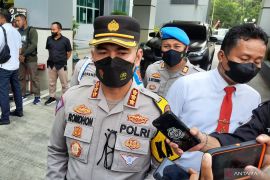"The synergy among the stakeholders was very poor, and this led to unexpected congestion," the Executive Director of Indonesia Network for Public Service Watch (INPITCH) Paring Waluyo Utomo said at a press conference here on Thursday.
They should have established an inter-institution synergy regardless of a regional border, he stated.
"Ideally, they should have reminded each other. The Public Works and Public Housing Ministry should have identified damaged and landslide-prone roads, and the police should have warned the Transportation Minister about the roads having no marks," he said.
He could understand if the Transportation Minister did not feel guilty for the severe congestion because the traffic issues fall under the authority of the police, and the damaged roads are the responsibility of the Public Works and Housing Works Minister.
The NGO added that the government should also have a mitigation capacity to address traffic jam problems.
In the meantime, a researcher at the Berdikari Institute, Anwar Ilmar said the police had failed to address the major traffic jam prior to the post-fasting Lebaran Islamic Holiday or Eid-El-Fitr, because of the lack of synergy.
The problem was unexpected because the Pejagan-Brebes toll road was new, and no one predicted that many homebound travelers would use the toll road, he said.
Anwar said the government should have laid out alternative roads for the travelers.
Earlier, the Indonesian Police had apologized to road users, who had to endure the up to 35-hour-long traffic jam while exiting the East Brebes gate prior to Lebaran.
"It was a major congestion. We extend our apology to the public for failing to meet their expectations. We, the apparatus and the government, have tried to deliver our best services," Brigadier General Agus Rianto, spokesman of the National Police, noted at the Police Headquarters, here, Wednesday.(*)
Editor: Heru Purwanto
Copyright © ANTARA 2016










